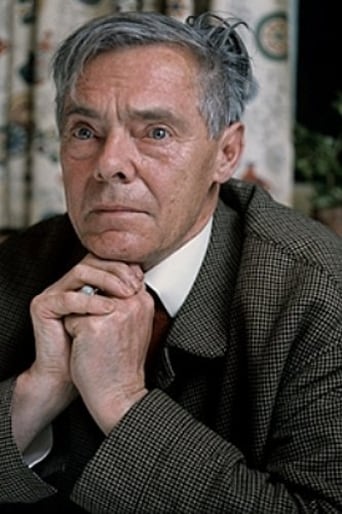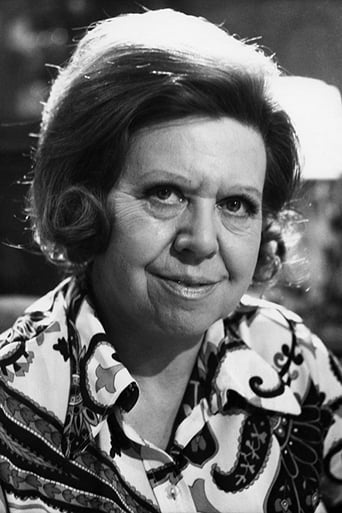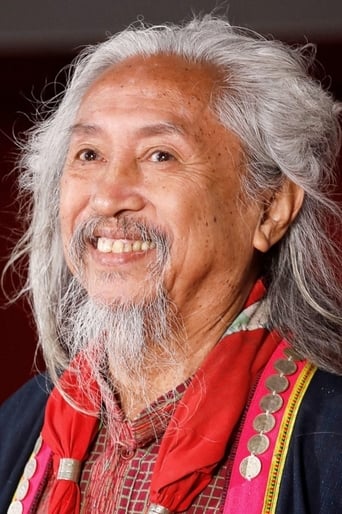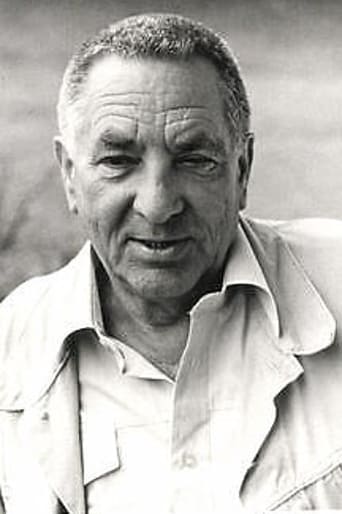tieman64
"Some day the piecing together of dissociated knowledge will open up such terrifying vistas of reality, and of our frightful position therein, that we shall either go mad from the revelation or flee from the light and into the peace and safety of a new Dark Age." - LovecraftDirected by Werner Herzog, "The Enigma of Kaspar Hauser" opens in 19th century Europe. Here a young child, Kaspar Hauser, recalls the day in which he was abandoned on a river. These hazy images comprise Kaspar's only recollections of life before he entered civilisation; prelapsarian, pre-language snippets of innocence.But Herzog's a pessimist and so innocence doesn't last very long. After poetic shots of swaying fields he quickly hits us with a title card: "Don't you hear that screaming all around you, that screaming men call silence?" Recalling Herzog's "Land of Silence and Darkness", this quote points to a landscape of suffering, death and decay. The universe wants you crushed. And to Herzog, a German absurdest with a fondness for consuming shoes, that's very very funny.It's quickly revealed that Kaspar has spent 17 years chained in a cellar with only a toy horse to keep him occupied. He is thus unable to speak, stand or function like a "normal" human being. He also loves horses, wild and at ease and so representative of an ideal mode of existence.The film's first half finds Kaspar being abandoned at a town in Nuremberg. Here the townsfolk poke and prod Kaspar, all in the hope of discovering who he is. During these scenes, Herzog satirises post-Enlightenment faith in empiricism, science and meticulous documentation. The townsfolk believe that the sheer force of scrutiny will solve the enigma that is Kaspar. But all their efforts prove futile.Kaspar's attempts to embrace Nuremberg's customs also prove frustrating. Kaspar finds it difficult to understand distance, size and perspective, and finds it difficult to grasp the relationships between objects, and the arbitrary borders which demarcate things. In one scene, for example, Kaspar struggles to understand where an arm ends and a hand begins, and why a hand is not an arm and vice versa. Of course there's a certain logic to the aforementioned demarcations, but also arbitrariness. Much of what we deem to be normal, never mind language itself, is itself a kind of arbitrary social agreement.Later Kaspar is essentially told that "man controls inanimate objects", a bit of hubris which is undermined when a disobedient apple leaps over a shoe. Man's egomania is challenged in another scene in which we meet a tiny king who lords over an ever shrinking kingdom. Others scenes find Kaspar questioning 19th century gender roles, and challenging various monarchs, academics and priests. But unlike similar films - "Elephant Man", "The Wild Child", "Edward Scissorhands", "Forrest Gump", "Being There" etc - Kaspar's "innocence" doesn't highlight a society that is brutish in comparison to him, but rather a civilisation that is blissfully denying a larger, almost ubiquitous brutishness. For Herzog, even empiricism, materialism and dour fixations on the corporeal miss something metaphysical that is far more terrible. The Church, busy creating bogus metaphysics of its own, is no better. "We, in comparison to the articulate vileness, baseness and obscenity of Nature," Herzog says in interviews, "only sound and look like half finished sentences out of stupid suburban novels. We have to become humble in front of this overwhelming misery and fornication. And I say this all, full of love." But Kaspar is not allowed to love on these terms, and so begins to grow depressed. He says he feels cut off from everything, sees his life as a "great fall" and feels comfortable only when in his bed. Suicidal, Kaspar begins to long for the solace of a death his society invests a great deal of intelligence in ignoring. He is assisted for a while by George Daumer, a real life German philosopher and student of Hegel. Daumer believed that man should "lift himself out of coarseness via culture". Kaspar and Herzog believe the opposite; that culture denies a coarseness that is sublime and worthy of worship.The film contains two musicians. One's a child who is robbed of his love for music by the rigidities of schooling, the other's a blind man who plays on his own terms. The man's music approaches the ecstatic and the sublime, heights which the film's overtly religious music aren't able to achieve; Kaspar finds religious music to be disgusting, emblematic of a false sacredness.Mirroring its early scenes, in which Kaspar is meticulously catalogued, the film ends with Kaspar's dead body being autopsied. Scientists then offer explanations for Kaspar's behaviour, all of which Herzog mocks. Prior to this scene Kaspar recounts a dream in which a blind man leads unbelievers to safety through a desert. An earlier dream found Kaspar witnessing hundreds of people climbing a hill towards death. The two dreams put forth seemingly contradictory messages: in the first, life is a hill which man robotically climbs, in denial of death. Oblivious to nature's terrors, man thus never really lives. In the second dream, however, treating death as an illusion leads to life and leads to the forging of a path out of the desert. Reconciling these two positions was perhaps one of the chief preoccupations of 19th and 20th century existentialism."Kaspar" remains one of Herzog's best films. Sad, funny, poetic, satirical, unconventional, philosophical, absurd, Brechtian, part German New Wave (touches of Fassbinder) part Medieval hippie, the film is at its best when it treats Kaspar's growing consciousness as something akin to a religious awakening. Today we forget how influential Herzog was, and how much directors like Lynch and Malick owe to him. The film features a shot in which a monkey rests on a horse whilst a camel walks on its knees. Only Herzog.9/10 – Masterpiece. See Renoir's "Bodou Saved From Drowning".
pruthvishrathod
A thought provoking and sad film. Movie's plot itself is quite rare. I guess, no other director than Werner Herzog would have dared to make a film on such subject. It is based on the true story of Kaspar Hauser, a young man who suddenly appears after spending almost two decades of his life in captivity without any human contact. The film focuses on efforts of various individuals to teach him basic activities. However, in the later half we see Kaspar as a person who has learned several basic things. It is about the troubles a man faces to connect with the society. He cannot digest the concepts of religion and loathes the order of society.During the whole film, we only see him as an immature, naive person. But inside him, there is a man with intelligence and purity. The years of isolation heavily affects his perceptions towards everything. There are some really beautiful insights in the film shown through metaphors and unforgettable images. And the film develops within itself with its beautiful soundtrack. Though we never know the origins of Kaspar Hauser. With a tragic climax, Herzog's lucid treatment and poetic insights, The Enigma of Kaspar Hauser leaves you with some incisive thoughts.
christopherRclarke
The film follows Kaspar Hauser (Bruno Schleinstein), who lived the first seventeen years of his life chained in a tiny cellar with only a toy horse to occupy his time, devoid of all human contact except for a man who wears a black overcoat and top hat who feeds him.This film may have actually been decent if the pace was brought up a little. The idea is interesting but I felt it wasn't told well enough. Also, the use of a 41 yo guy instead of 18 like the real guy is stupid and hated his bulging eye look which was over done.I sat through the first hour waiting for it to become a great tale but alas, I finally turned it off. The acting was too labored in the beginning, even though it got better, but perhaps a real actor may have been a better choice than a street performer which may have been chosen out of pity.
ShootingShark
In 1828 in Nuremberg, a young man is discovered who appears to have had no contact with other people and can only write his name - Kaspar Hauser. Adopted by the locals, he begins his education, but can he ever truly be a normal member of society ?Based on a well-documented case, this is a charming, eerie, thoughtful little film about a man in extraordinary circumstances. Kaspar is the victim of a cruel fate which causes him to despair once he realises it, and yet at the same time he has a unique perspective, a way of seeing the world that no-one else can, typified by his response to the logician's story of the two villages. He is both helpless and peerless at the same time. Herzog fills the movie with dreamy images (a beautiful shot of a wheat field blowing in the wind with Pachelbel playing on the soundtrack) and grainy sequences representing Kaspar's dreams, elegantly conveying his mental state in purely visual terms. Perhaps his most inspired touch though is in casting Bruno S(chleinstein), a non-actor raised largely in mental institutions, who has more than a little kinship with the protagonist. He seems to embody Kaspar perfectly; his confusion, ideology, affection for nature. He never looks at anyone directly, and with his rustic features and small eyes permanently focused a few feet ahead of him, he gives a unique performance that no trained actor could deliver. Jörg Schmidt-Reitwein shoots the movie with wonderful style, capturing a tremendous early nineteenth-century look but adding many creative abstract shots, like the one of Kaspar watching his reflection in the water barrel. The film was made thirty-five years ago, but could just as easily have been made a hundred years ago. An intriguing tale of a lost childhood and a mysterious death. The English title is The Enigma Of Kaspar Hauser, although the German title literally translates as Everyone For Himself And God Against All.






